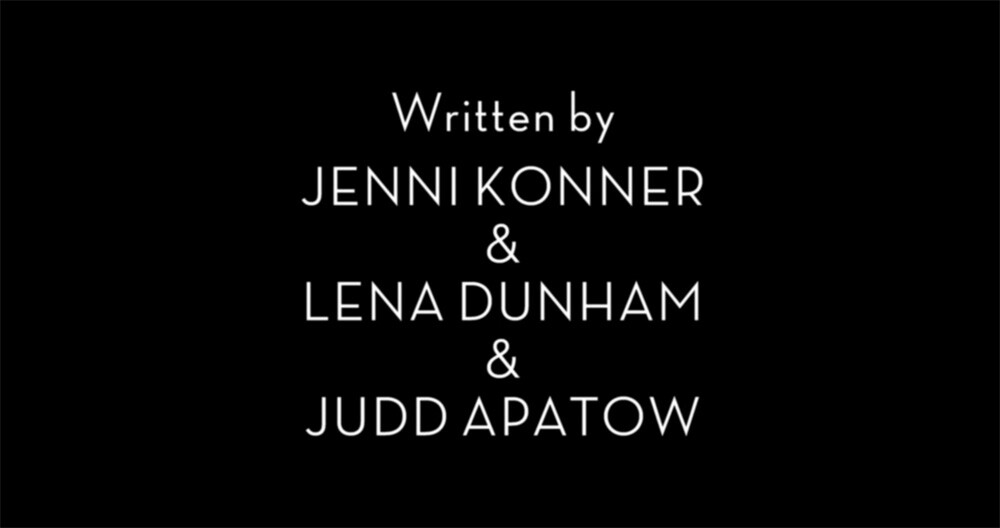Everybody Was Too Annoyed With Lena Dunham To Appreciate 'Girls'

Welcome to ComedyNerd, Cracked's new deep dive series about guffaws and chuckles (but absolutely no chortles). Today's topic: a once-controversial show that now seems ordinary, seeing as how Millennials are 40. (Also, the ComedyNerd newsletter launches September 30. Sign up here.)
If you've never seen Girls—or, let's be honest, even if you have—it's easy to get the impression that Lena Dunham's greatest talent is getting people to hate her. She never really had a chance not to become insufferable; as the child of artists who have somehow managed to remain both wealthy and extremely weird, she was getting asked about fashion by Vogue from the time she was 11 years old and the New York goddamn Times covered a party she threw when she was 16.
Don't Miss
Mind you, this wasn't some extravagant Sweet 16 bash encompassing an entire hotel and featuring the musical stylings of 98 Degrees or something; it was a medium-size dinner party. Just a teenage girl and a dozen friends eating baba ganoush. A reporter showed up to that.

Under such circumstances, it would be hard not to grow up thinking the world was hanging on every thought that swerves erratically through her head like a drunk pigeon. That's probably why she somehow got it into that bucket full of kombucha and misguidedness that it was okay to not only wish for the opportunity to have an abortion, assume a (Black) fellow celebrity's indifference to her was due to seething misogyny, adopt a dog despite full knowledge of the many reasons she's incapable of caring for one (and then controversially rehome the dog), fondly recall behaving like a "sexual predator" toward her sibling in their youth (and so on and so on), but to tell everyone all about it.
Upon hearing that someone gave this person a TV show (on the strength of a one-and-a-half-page pitch that, again, would never be accepted from someone whose rich parents hadn't just funded their South by Southwest breakout hit) about Young People Today, no one would blame you for dropping your television into the ocean.

HBO
Predictably, Girls attracted criticism from the get-go, for everything from the lack of diversity among its cast and crew to Dunham's excessive nudity to her character's insistence that she's "the voice of my generation," roughly in order of merit. Because if you take that information—and descriptions of the show by many, Dunham included, as a sort of Sex and the City for millennials—at face value, it definitely sounds bad.
If people had watched the show, however—and largely, they didn't—they'd find out that, surely thanks in no small part to the poor team of writers tasked with bringing Dunham's vision to fruition, it's less Sex and the City and more It's Always Sunny in Philadelphia.
Carrie Bradshaw does plenty of ridiculous things, but we're always supposed to understand where she's coming from, whereas Dunham's Hannah Horvath is probably the least understandable fictional character ostensibly born in this universe. Throughout the series, we see her deal with sexual harassment by attempting (and failing) to seduce and then extort her boss, badger her publisher's widow at his funeral for an update on the status of her contract, send an "apology" letter to all her classmates in a prestigious writer's workshop that was actually a backhanded attack for criticizing her story, and plenty of other Dunham-style terrible things. We're not rooting for her when she does them.

HBO
The other Girls—a psychopathically uptight musician, the social-climbing and trend-obsessed embodiment of FOMO, and a globetrotting "free spirit" with a tendency to disappear for months at a time for various rehab stints or other self-finding missions who stood her friends up at her own (unnecessary, it turned out) abortion—aren't much better. They're not totally unsympathetic, but we're not hoping these situations they put themselves in will work out. We're hoping for them to be better.
The comedy comes from them completely failing to be decent human beings; the drama comes from them digging their way out from inside their own assholes. It's not clear how, because Dunham presumably lost her last shred of self-awareness when she used it to pay for a tattoo, but through some combination of deeply buried fragments of self-deprecation and a team of actual professionals, she created a pitch-perfect satire of herself.

HBO
But it's easy to see why people didn't realize that when Hannah whines that famous line about being the voice of her generation while throwing a temper tantrum at her parents, who have cut her off financially after two years of post-university flailing, she's the butt of the joke. That's a thing that you could easily see Lena Dunham doing or at least siding with. She herself might not realize it; the tonal shift at the end of each episode, which includes a "behind the scenes" featurette where Dunham acts like handheld cameras and panning shots are groundbreaking cinematic achievements, could give you whiplash. No wonder the central question behind every Girls controversy essentially boiled down to "Is she joking with this shit?" The answer was usually "almost certainly," but that's a big "almost."
In retrospect, however, the show seems downright quaint. Even Dunham's nudity is hardly shocking in a world where half of your social circle not only has an OnlyFans but you subscribe to it because you're a supportive friend. When the first season aired in 2012, the technological landscape—and hence, society itself—was completely different. Check out the version of Twitter Hannah uses (on a laptop?!) in the second episode and then take however long you need to recover from the embarrassing flashbacks:

HBO
-actual dialogue from the first episode
That was a world where we were still grappling with the advent of social media, which was still primarily used for telling everyone what you had for lunch. You could get famous for having a weird-looking cat, and a "hot take" was probably some kind of shoplifting slang. It was the first time a global platform was available to anyone with basic computing skills, so for a few years there, we all shared way too much information about ourselves. Everyone was indulging in the kind of self-involved, confessional-style storytelling that temporarily made someone like Dunham seem normal.
Then, right around the time Girls premiered, we all woke up from our solipsistic blackouts, except Dunham never did. Social media became a place to share and, more importantly, argue about news, the more sensational, the better, and Dunham is nothing if not sensational, in the "burning" sense of the word.

HBO
Suddenly, the team behind the show had to guide their premise to a conclusion under the harsh scrutiny of hordes of critics while its creator continually put her foot in it. And they mostly did a pretty good job. There are a thousand ways their response to criticism of the show's lack of diversity—casting Donald Glover to make out with Dunham and insist that she's actually too sensitive to racial issues for a whopping two episodes—could have gone wrong, and while it ultimately fell short, they did make Hannah's privilege and fragility the unquestionable punchline.
It's probably no coincidence that a season four storyline involved the normalization of abortion, an issue that Dunham would later famously reveal was near and dear to her tactless heart, and handled it an order of magnitude better than she did. If you've ever worked for that kind of Michael Scottish person, where you had to anticipate all the ways they might accidentally bring the ship down and put up metaphorical baby gates around them, you know how hard that must have been.

HBO
Ultimately, what brought the ship down was ratings. Despite the media circus, the show never managed to pull more than about a million viewers. (By comparison, HBO's crowning jewel, Game of Thrones, was averaging nearly 12 million by the end.) Everyone was criticizing it, but nobody was watching it.
Now, with Hollywood somehow producing new scandals faster than the trending algorithms can process them, it's hard to understand why "Girls think piece season" was ever a thing. It was a show about screwups who eventually maybe stopped screwing up quite so much, and if it was anyone else's brainchild, it would have limped along, safely ignorable by anyone outside of its tiny audience.
Today, it's a time capsule from an unrecognizable decade past: once upon a time, Netflix sent you DVDs in the mail, Obama wore a tan suit, and a half-hour sitcom about a bunch of underemployed Oberlin graduates was somehow fodder for breathless national discourse.
Top image: HBO